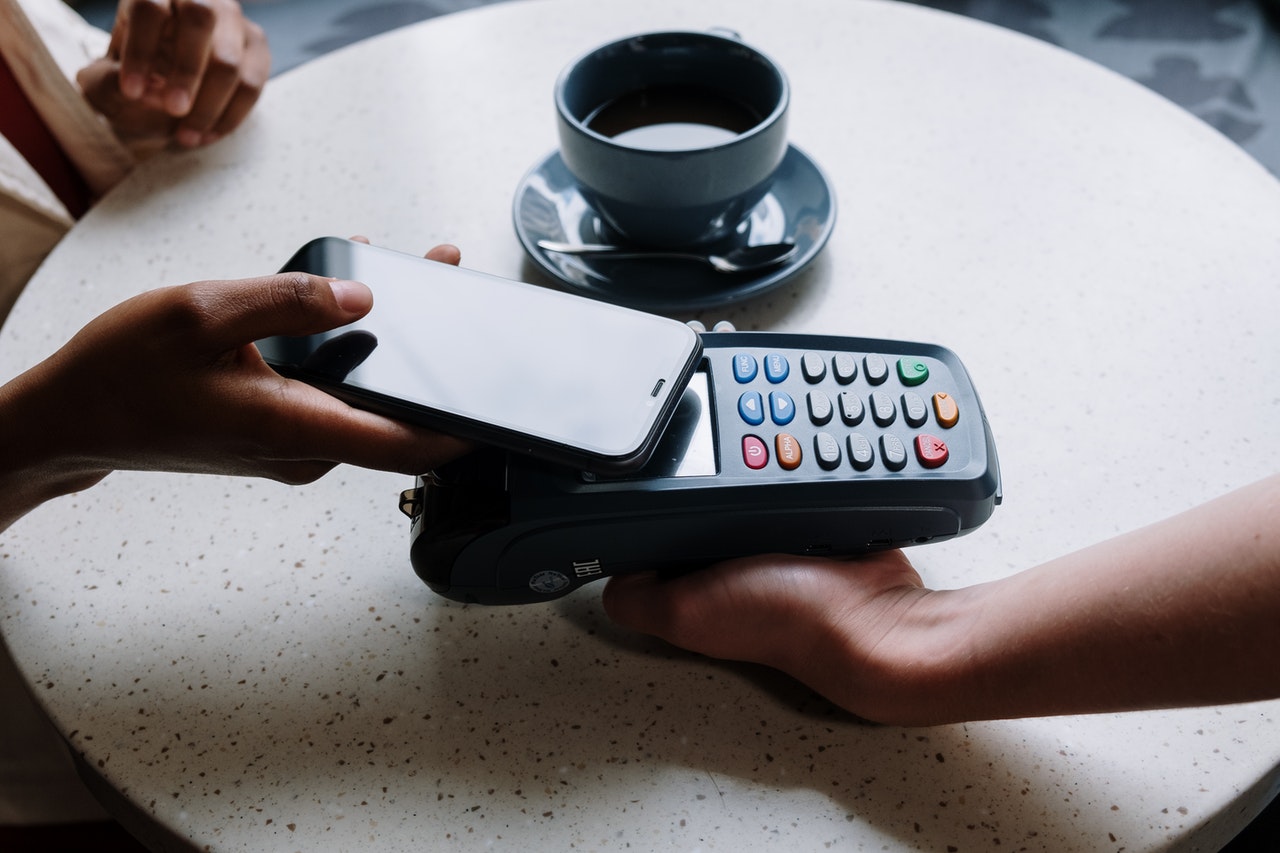One of the biggest news in the iPhone 6 was the launch of Apple Pay (No not iPay as we might have expected). Apple Pay is a feature that allows you to pay with your iPhone.
You register your bank cards with Apple and can then use Apple Pay to quickly and easily use these bank cards to pay for your latte or movie ticket. You no longer need to carry a bank card in your wallet. At least not when you go to places that accept Apple pay. If you register several bank cards with Apple Pay, you can choose which one you want to use to pay.
This could be the beginning of something big and could be a major source of revenue for Apple. Apple with its large customer group is right from the start stepping past most of the competitors who are trying to revolutionize how we pay, such as Square. However, the question is how good Apple Pay really is and whether we are willing to adopt it as our primary payment solution.
We can already today borrow money directly with the mobile phone, log in to the bank to make transfers, pay bills, etc. If we will also be able to pay with our mobile phone, we will not need a wallet at all. This means that during the moment we are in a store, we can borrow money, move it between accounts and then quickly pay what we want to buy.
Pay with apple pay
Let’s start by looking at the technology behind Apple Pay. Apple Pay uses near-field communication (NFC) to let the iPhone communicate with payment stations and make payments. The NFC chip allows your iPhone to send your bank card information to the payment station that uses it to deduct the purchase price from your card. Apple Pay only works if you have associated at least one of your bank cards with the service. To complete a payment, simply place your finger on the screen. Your fingerprint is used to verify your identity.
The NFC chip is only available for Apple. App manufacturers and other developers do not get access to it. This increases security. However, NFC is a 10-year-old technology and not necessarily the best solution to use. One solution that many prefer is CurrentC which uses QR codes. QR codes are not directly new either but have many advantages over NFC. Not least that the terminals are easy to maintain and need some maintenance ..
NFC is disapproved of by many resellers due to the fact that NFC terminals need so much care. The large American chains Best Buy and Walmart will e.g. do not use this technology. This is despite the fact that Best Buy used to use it but decided to stop doing it due to the maintenance of the machines (NFC terminals need a lot of maintenance). It seems difficult for a service and a payment technology to have a really big impact if it is not accepted by Walmart. From this point of view, it seems more like Apple pay may be something you pay with in the coffee shop but not something that will be used for larger transactions.
Then we also need to ask ourselves if people are willing to trust Apple and give them all the information about their credit card. To some extent, this already happens when they buy things in iTunes, but most people probably see it as two very different things to give out their account information to pay for an app and to give out their account information so Apple can store it so that your phone can be used to pay for other things.
A source of concern is whether the use of Apple Pay will allow Apple to track what it buys. Apple will definitely be able to do that if they so wish. However, they themselves claim that they will not store any purchase information. Whether one believes in this or thinks that they may later change their TOS in silence to track one’s purchases is a question every user must ask themselves. We do not want to suggest that they will, but we do not want to deny that it is a possibility. In its current form, Apple Pay generates very little revenue for Apple. Only $ 0.15 on every $ 100 wagered.
It is therefore very possible that Apple has new sources of income in mind to make money on the service when it is more established. This could consist of raising their fees, displaying in-app advertising when making purchases, or tracking purchases to use that information for more targeted marketing.
There is no doubt that Apple has a gigantic target group and that this gives the company a great advantage when launching new products such as this. Despite this, I can not see that Apple Pay will get a major adaptation in the near future and Apple Pay is by no means a given winner in the war to create a cashless society. Apple Pay can eventually become a great success or a small passage in the company’s history. Right now it looks more likely later but I would not be surprised if Apple Pay is a success.
